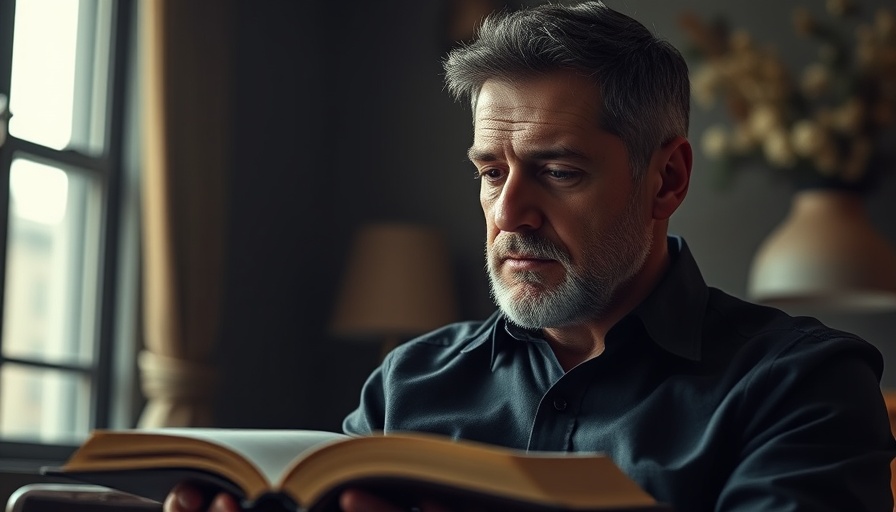
Do You Need Witnesses at a Wedding? Understanding the Basics
Weddings are more than just lavish ceremonies; for many, they are sacred covenants rooted in faith and tradition. A question that frequently arises is whether witnesses are necessary when tying the knot. In this article, we will explore the biblical and cultural significance of witnesses during weddings, breaking down the essential components of this Christian rite.
In 'Do I need Witnesses at a Wedding?,' the discussion dives into the significance and implications of having witnesses at wedding ceremonies, exploring key insights that sparked deeper analysis on our end.
The Biblical Foundation of Marriage
The concept of marriage is profoundly rooted in biblical scripture. In Genesis 2:24, it states that a man shall leave his father and mother and be united to his wife. While the Bible highlights the importance of the marital union, it doesn’t explicitly specify the need for witnesses. However, Judaism, from which Christianity emerged, traditionally required witnesses to ensure that the union was recognized within the community.
This practice reflects the broader understanding that marriage is not merely a private affair between two individuals but a covenant recognized by God and society. Therefore, the presence of witnesses serves a critical role in affirming this commitment.
Why Witnesses Matter: A Symbolic Perspective
From a symbolic perspective, having witnesses at your wedding brings clarity and accountability to the marriage vows made. Witnesses are individuals who not only celebrate the union but also stand as guardians of the commitments made that day. Their presence signifies that the couple is making a serious and public commitment to one another.
Much like the witnesses at a legal contract signing, marriage witnesses serve as a form of covenant accountability to both the couple and their community. They embody the principle that marriage encompasses broader implications beyond the couple involved.
The Role of Witnesses in Cultural Contexts
In many cultures, the role of a witness extends beyond their physical presence. In traditional weddings, witnesses often participate in pre-marital counseling or rituals that help couples prepare for the responsibilities of married life. This cultural and communal involvement fosters a support system that can lead to healthier, more resilient marriages.
Moreover, different cultures have unique interpretations of what a witness signifies. In planned ceremonies, such as those usually held in churches or formal venues, you might see the best man, maid of honor, and even family members function as witnesses. Their roles often encompass both emotional support and formal recognition of the union.
Counterarguments: Is Witnessing Really Necessary?
Some may argue that as long as a couple is committed to one another, formalizing a marriage without witnesses is adequate. In certain jurisdictions, it is possible to have a simple civil ceremony where witnesses are not required. However, this raises questions about the broader implications of marriage.
For believers and faith-based communities, marrying without witnesses can lead to perceptions of invalidity or reduced significance of the solemn vows exchanged. Various denominations may have differing requirements based on their theological stances, emphasizing the importance of communal recognition and support in the marriage covenant.
Creating a Meaningful Wedding Experience
Ultimately, the significance of witnesses in a wedding ceremony encompasses far more than making a legal or religious formality. For those contemplating marriage, consider how including friends and family can enhance the shared experience of your union.
Inviting loved ones to witness this important milestone not only fosters an atmosphere of support but also enriches the overall experience. It encourages ongoing relationships with your community, strengthens familial bonds, and establishes a bedrock for future generations of family. After all, marriage is about two people embarking on a lifelong journey together, and it’s vital to have witnesses who can celebrate and support that journey.
Take Action: Reflect on Your Wedding Plans
As believers and those seeking faith-centered decision-making, we invite you to reflect on your wedding plans. Are you considering having witnesses? Think about the role they could play in your marriage. Call on trusted individuals to join you in this journey of faith and accountability. Establishing a connection with your community through your wedding ceremony can make your commitment stronger and rooted in shared values.
In summary, the inclusion of witnesses in a wedding ceremony is not merely a formality; it is a deep-seated testament to the communal nature of marriage. Society, faith, and personal relationships all intertwine, fostering an atmosphere of support, love, and accountability as two people unite for a lifelong journey.
 Add Row
Add Row  Add
Add 








Write A Comment